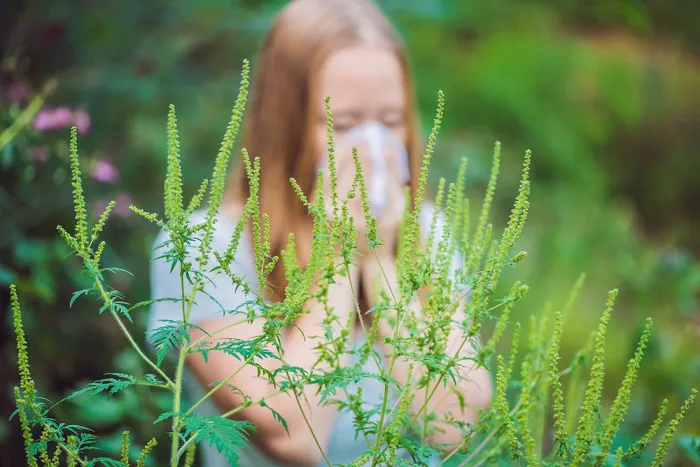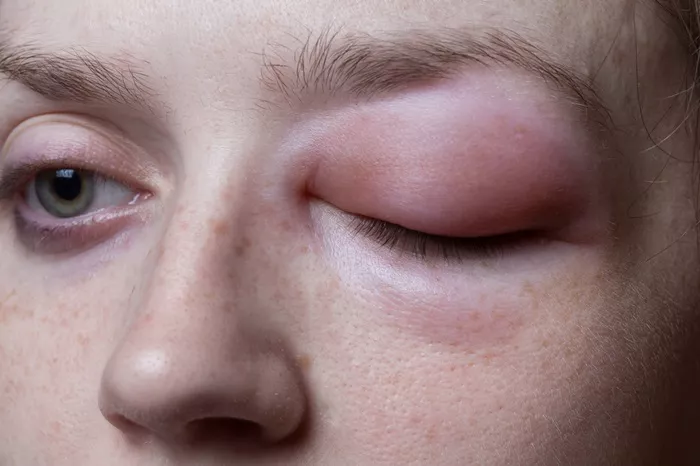Why Do Lips Become Red, Swollen, and Allergic?
Lips are one of the most sensitive parts of the body. They have a thinner layer of skin compared to other areas, making them highly vulnerable to external irritants, allergens, and environmental factors. When lips turn red, swell up, or show signs of an allergic reaction, it usually indicates that the natural protective barrier has been disrupted. Several factors can cause these symptoms. Allergic reactions often arise from contact with certain foods, skincare products, or lip cosmetics. Common allergens include ingredients like fragrance, preservatives, or even natural extracts that some people cannot tolerate. Environmental factors such as wind, sun exposure, or cold temperatures can also damage the lips, causing them to crack, become inflamed, or react abnormally.
Infections are another cause that should not be overlooked. Bacterial, viral, or fungal infections can lead to redness and swelling. For instance, herpes simplex virus can cause painful, blistered lips that mimic allergic reactions. Therefore, identifying the underlying cause is critical before choosing the right treatment. Without knowing what triggered the reaction, taking medicine blindly might not only fail to help but could even worsen the situation.
How to Identify the Cause Before Taking Medicine
Before rushing to the pharmacy, it is important to carefully observe your symptoms and recent exposures. Think about any new products you have used, such as lip balm, lipstick, or toothpaste. Also, recall if you recently ate foods that commonly cause allergies like nuts, shellfish, or citrus fruits. If the reaction was sudden and severe, it could be an immediate hypersensitivity reaction. On the other hand, if the swelling developed gradually along with dryness or cracking, it might be due to irritation or infection rather than true allergy.
Checking the appearance of your lips can also give clues. If the lips are just swollen and red but not itchy, it may point toward irritation. If there are small blisters, herpes or another viral infection could be the cause. If there is scaling or peeling, it may be contact dermatitis. Understanding these details helps you select the correct medicine and avoid unnecessary complications.
If the symptoms are severe, involve breathing difficulties, or the swelling rapidly worsens, it is important to seek emergency medical care immediately instead of relying on self-medication.
What Over-the-Counter Medicines Can Help?
For mild cases of allergic or irritated lips, several over-the-counter (OTC) options can be effective. Antihistamines like cetirizine or loratadine are widely used to reduce allergic reactions. They help decrease swelling, redness, and itching. Antihistamines are usually well-tolerated and start working within an hour or two. For localized treatment, hydrocortisone cream (1%) can be gently applied to the lips if recommended by a pharmacist. It helps to reduce inflammation and redness. However, steroid creams should be used carefully on lips due to the delicate skin.
Topical anesthetics like lidocaine gel can provide temporary relief if the lips are very painful. However, these should not be overused because they can sometimes cause irritation themselves. In cases where dryness and cracking accompany the swelling, applying a thick, fragrance-free emollient like petroleum jelly can protect the lips and promote healing. Always choose products labeled hypoallergenic to minimize further allergic risks.
It is important to read all instructions carefully and avoid applying any product to broken or bleeding skin unless specifically directed by a healthcare provider. If symptoms persist after a few days of OTC treatment, medical advice should be sought.
When Should You See a Doctor?
Although many cases of lip allergies and swelling can be managed at home, some situations require professional attention. If your lips do not improve within three to five days of self-treatment, it is a sign that something more serious could be happening. Similarly, if blisters, severe pain, or pus appear, it could indicate an infection that needs prescription medicine such as antibiotics or antiviral drugs.
Additionally, if your allergic reactions tend to be recurrent or seem related to an unknown trigger, allergy testing might be necessary. Dermatologists can perform patch testing to identify the specific allergen causing your symptoms. Knowing the exact trigger can help you avoid future episodes and choose preventive strategies rather than constantly treating symptoms after they occur.
People with chronic health conditions, such as eczema or autoimmune diseases, should also be cautious, as lip swelling could be a part of a broader systemic issue that requires more specialized treatment.
What Prescription Medicines Might Be Used?
In more serious cases, doctors may prescribe stronger medications. Oral antihistamines at higher doses might be recommended to control widespread allergic responses. For severe inflammation, short courses of oral corticosteroids like prednisone may be needed to quickly reduce swelling and prevent complications.
If a bacterial infection is suspected, oral antibiotics such as amoxicillin-clavulanate may be prescribed. For viral infections like herpes simplex, antiviral medications like acyclovir or valacyclovir can help shorten the duration and severity of the outbreak. Fungal infections, though less common on the lips, may require antifungal medications such as fluconazole.
It is critical to follow the doctor’s instructions carefully when using prescription medicines. Stopping treatment early or misusing drugs can lead to resistance, recurrence, or worsening of the symptoms. Even when feeling better, completing the full course ensures complete recovery.
Can Natural Remedies Help Alongside Medicine?
Some people find relief using natural remedies alongside conventional medicine. However, it is essential to choose natural methods wisely to avoid aggravating allergic reactions. Aloe vera gel, known for its soothing and anti-inflammatory properties, can be applied to unbroken lip skin. Pure, organic coconut oil can help moisturize dry, irritated lips without adding chemical irritants.
Chamomile extract, used in some lip balms and ointments, has mild anti-inflammatory effects and can promote healing. However, individuals allergic to ragweed should be cautious, as chamomile is in the same plant family and could trigger cross-reactions.
Natural remedies should never replace prescribed medications for serious conditions but can complement treatment if used carefully. Always test any new natural product on a small skin area first to ensure there is no adverse reaction.
How to Prevent Red, Swollen, and Allergic Lips in the Future
Prevention is always better than cure. To reduce the chances of experiencing red, swollen, and allergic lips again, adopt good lip care habits. Choose lip products that are fragrance-free, dye-free, and labeled for sensitive skin. Apply a protective balm before going outdoors to shield the lips from wind, sun, and cold. Reapply it regularly, especially after eating or drinking.
Avoid sharing lip products with others to prevent the spread of infections. Maintain good hydration by drinking plenty of water throughout the day. Identify and avoid personal allergens once known. For instance, if you have had a reaction to a specific brand of toothpaste or a certain food, eliminate it from your routine.
Building a simple, consistent lip care routine can greatly reduce the risk of future problems and keep your lips healthy, soft, and resilient.
What Is the Best Approach?
Choosing the right medicine for red, swollen, and allergic lips depends on identifying the cause first. Mild cases can often be treated successfully with OTC antihistamines, hydrocortisone cream, or protective emollients. More severe reactions might need prescription medications like antibiotics, antivirals, or oral steroids. In all cases, careful observation of symptoms, early intervention, and following medical advice are the keys to fast recovery.
Combining sensible use of medication with preventive care routines ensures not just healing but also long-term lip health. Staying mindful about what products you use, maintaining good hydration, and seeking professional help when necessary will keep your lips beautiful and healthy.
Related Topics
































